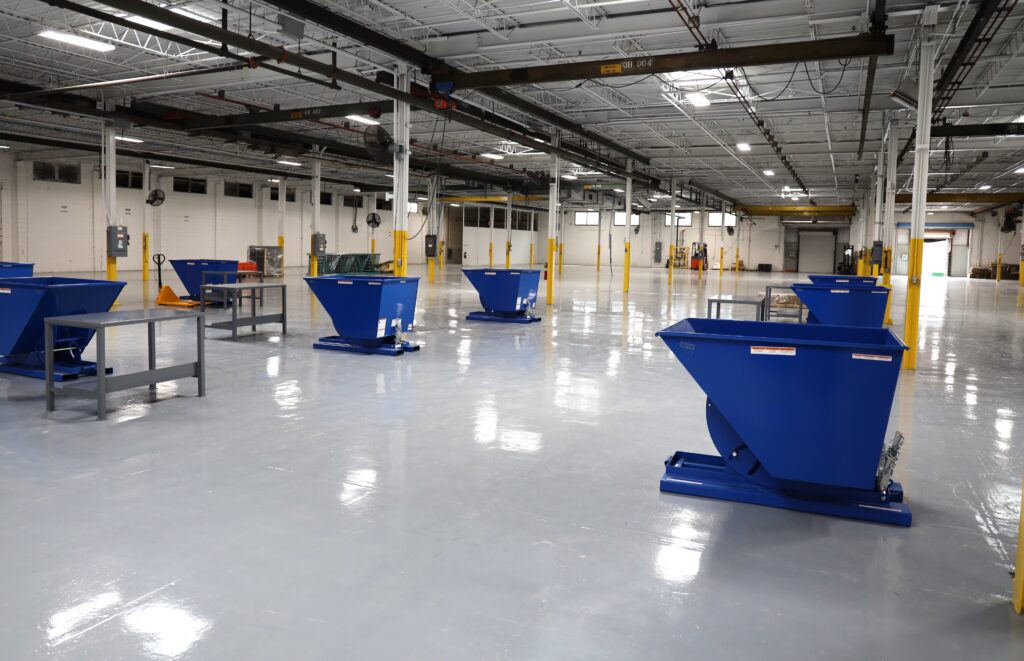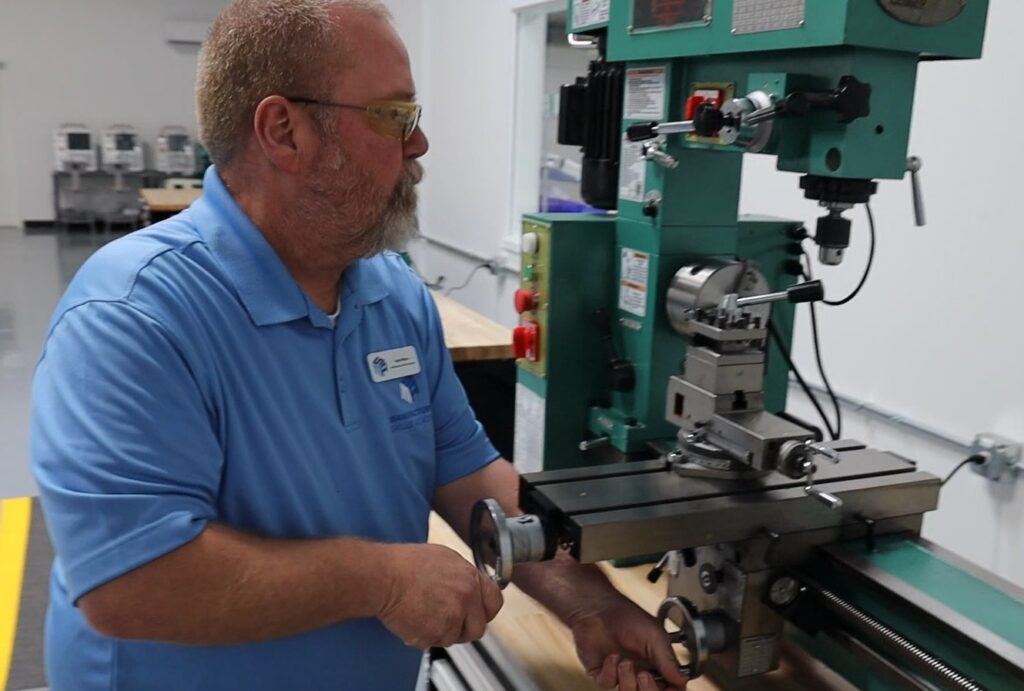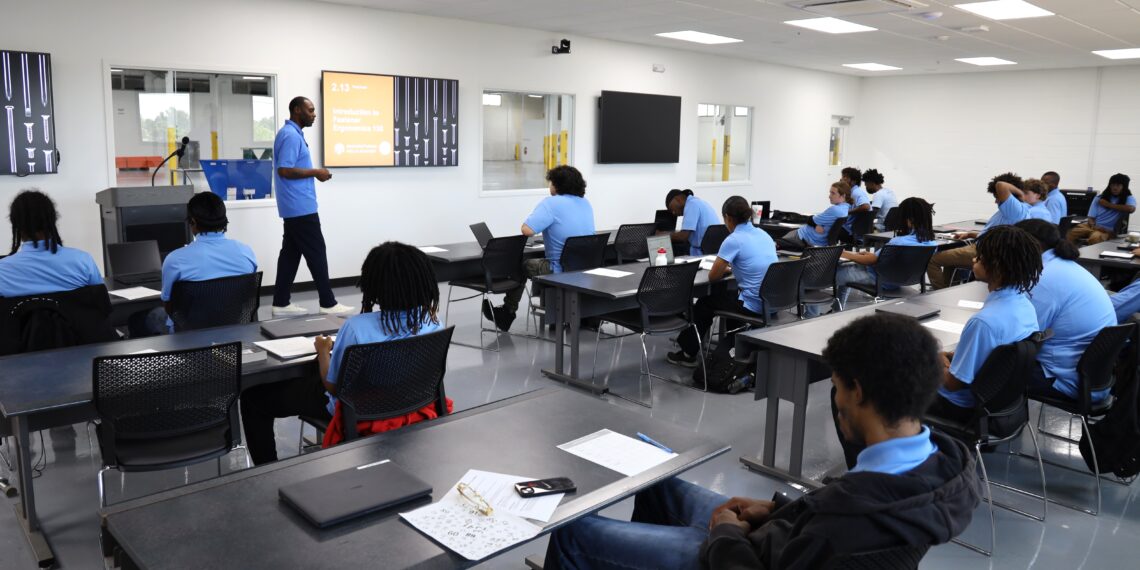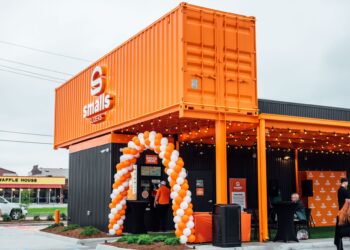OKLAHOMA CITY (OBV) — With about 350 open computer numerical control (CNC) machinist jobs in the Oklahoma City metro, business and state leaders have teamed up to address the shortage.

Now open in Oklahoma City, the Oklahoma Manufacturing Skills Academy is a new program and facility designed to strengthen the state’s workforce.
Created in part with funds from the American Rescue Plan Act over the last three years, the 73,000-square-foot facility is located just northwest of the Oklahoma State Capitol. The academy trains classes of 20 to 30 students through a six-month program to become certified CNC machinists.
“It’s problem solving. Manufacturers often say they may want a machine operator who just pushes a button, but they also need someone who understands why they do that,” said Sharon Harrison, Ph.D., of the Oklahoma Manufacturing Alliance.
Each participant receives a small stipend while in the program. Training begins in the classroom with employment readiness and life skills courses. Students then move to manual machines, advance to CNC trainers and finish on the shop floor working on real equipment.
“What I noticed, even the first day here, as the participants were leaving, they came up to me shaking my hand and saying thank you so much for this opportunity,” Harrison said.

The program has partnered with the Central Oklahoma Manufacturing Alliance and up to 60 manufacturer education partners. The academy is also working with Oklahoma City nonprofits and Oklahoma City Public Schools to recruit recent graduates who may be a good fit. Organizers say regular field trips help ensure students succeed after completing the program.
“Each participant has a mentor — someone from industry who’s going to help guide them through their career and through this program,” Harrison said. “Every other week we go for tours at manufacturers. Those are some of the manufacturers who are hiring, so relationships are being built with them as well.”
The long-term goal for the academy is to have students machine finished products for Oklahoma manufacturers. Harrison said the program will also expand into upskilling current employees in areas such as artificial intelligence, supply chain management and data analysis.
“You can send employees here who may be working in production or assembly — employees who have been consistent and shown up on time, that employers want to give a career in manufacturing to,” Harrison said. “They can get trained up into CNC machining. It’s a career pathway.”

















